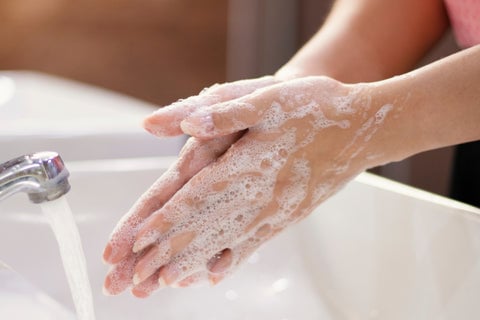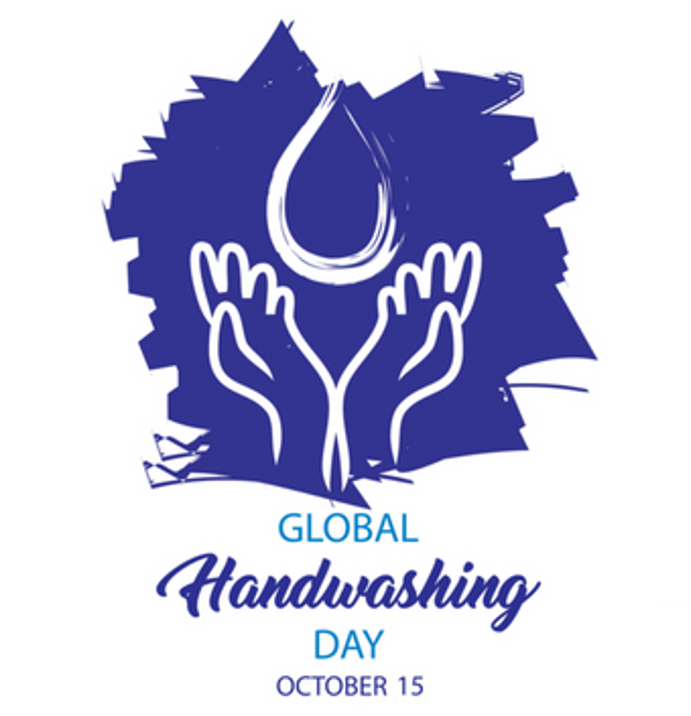October 15th was Global Handwashing Day, and it’s such an important time of year to really focus on the practice and awareness of handwashing. In 1847, a Hungarian obstetrician, Ignaz P. Semmelweiss, showed that handwashing would greatly reduce infections in newborns. His colleagues thought that he was insane, but since that time his claims have been proven true again and again. Handwashing does greatly reduce the spread of disease, and while 95% of people claim to practice proper hand hygiene, studies show that only 67% practice any sort of hand hygiene, not to mention proper hygiene.
All Portable Sinks believes in the power of handwashing, which is why we want to make it as easy as possible through sinks that do not need to be connected to plumbing. Here are a few interesting facts and studies that have been performed on handwashing to not only show the value of it but also show how having easy access to sinks can help.

Why Is Handwashing So Hard?
The American Journal of Infection Control covered the challenges that are involved in hand hygiene standards, and how to reconstruct programs to improve the compliance. They started the study by utilizing a hospital’s infection control program and initiating “stealth observers” to collect objective data to track improvements. They also appointed hand hygiene coaches to provide feedback – 250 coaches were trained over three months. Through this program, compliance increased by 14% among staff, and the coaches worked to help overcome hand hygiene barriers.
It seems like common sense to promote handwashing among young children, but did you know that as they get older, the lack of parental follow-up means a decrease in handwashing? This means that when kids are in college and grade school, they are washing their hands a lot less than they think they are. A recent study in the American Journal of Infection control looked at the impact of hand hygiene by college students. The study linked poor hand hygiene practices to increased occurrences of infectious diseases, medical visits, and absence from class and work. College and university campuses had a very high risk for the spread of diseases, because the students live near each other, and are exposed to both the environmental and indoor pathogens. Most students claimed to wash their hands frequently, but the study showed that 57.7% of the hands surveyed were colonized with all types of microbial contaminants that could be linked to increased infectious diseases, absences, and medical visits. Promoting hand hygiene education and proper handwashing stations to students can be a great start towards improving this area.
Someone Is Watching You
Another study published by the American Journey of Infection Control examined how behavior would change if someone was being observed when it comes to handwashing. The researchers at an Australian hospital trie automated surveillance, as well as 20-minute mandatory human audits in a surgical and medical ward. The findings showed that when people were audited by humans, the percentage points for hand hygiene were 55 points higher than the automated surveillance rates. In the surgical ward, human audits increased handwashing rates by an average of 32%, but the automated audits collected more than 500 times more data than the human audits did.
If you don’t think that absenteeism is an issue in school – think again. The average student in the US (K-12) will miss 4.5 days per school years while the average teachers will miss 5.3 days per school year. This results in 164 million lost school days for students, and when calculated out, averages to a total loss of funding associated with student absenteeism each year of about $10.7 billion in the US. Illness isn’t the only reason that students are absent, but it is believed to be the main reason.
It would be virtually impossible to keep every surface in a school clean, but there is one surface that can be kept clean, and that is children’s hands. Bright (2009) performed a study to find which commonly touched surfaces in elementary school classrooms were the most contaminated. The results? The drinking water fountain handle and the manual pencil sharpener handle were the most contaminated with Influenza A on 24% of surfaces and norovirus found on 16% of surfaces. Numerous studies that have proven that absenteeism can be reduced by 5-10% when an emphasis is placed on hand hygiene in a school.

Handwashing is a Global Issue
This challenge isn’t just in one country, the world as a whole battles the lack of handwashing. However, it’s more important than ever to place a priority on hand hygiene and minimizing the spread of infectious diseases and germs. Not only are people spending a lot of time in enclosed spaces within close proximity to others, but the ability to travel makes this even more challenging.
Thankfully, All Portable Sinks has a solution in the form of sinks that you can place anywhere. Portable sinks are great for healthcare offices, schools, offices, and any facility where you would like to make handwashing prominent without having to install plumbing. You can visit our website to learn more about our sink styles, and follow our social media channels to learn more about our company.
All Portable Sinks – Making Clean-Up Easier!